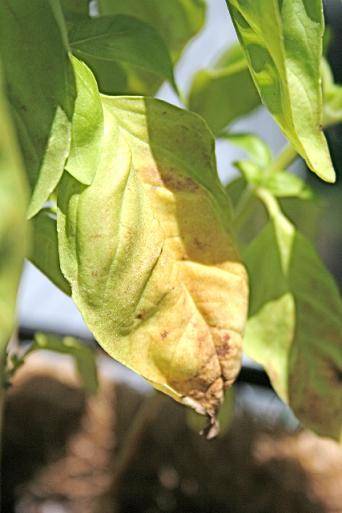
I bought my son a purple metal spade. It was the same day I bought $60 worth of herbs and vegetables at Prairie Gardens. We potted the herbs one of those warm afternoons in March. When he decided he dipdn’t really like helping with this dirty project, I potted the tomato plants and the lettuce starts myself. I had to buy myself another spade and more potting soil.
He was busy playing super-hero sword boy with his little shovel. Or Prince Caspian. Or some other non-gardening hero. I am a semi-urban Mennonite trying to save the world one pot of herbs (and, later, one batch of pesto) at a time. Without too much work, these cheap terra cotta and plastic pots seem a good way to extend my peaceable urges. My son is a four-year old with bigger plans, taking down bad guys, complete with sound effects and an occasional original song.
For the last several weeks, I’m annoyed at the weather. I’ve had to cart the pots in and out of my dining room and entryway six or eight times. The rain has been good for them, but the dips below freezing threaten the salvation of God’s good creation (though the immediate threats are my over-eager, early planting and the lethal weapon of purple-sword boy).
Nature, though, makes a better idea than a partner, especially if, like me, you don’t really like dirt and complication. Ralph Waldo Emerson really liked the idea of Nature (capital N). Mostly, the Nature he idealized was a text of wisdom to be read, a voice that spoke unassailable truths, and a damned cooperative, friendly force:
The wind sows the seed; the sun evaporates the sea; the wind blows the vapor to
the field; the ice, on the other side of the planet, condenses rain on this; the rain
feeds the plant; the plant feeds the animal; and thus the endless circulations of the
divine charity nourish man.
Doesn’t that sound lovely? All you need to do is step into the process and play your part. In theory, this seems easy enough. It’s spring, so I help the wind out a bit by planting stuff—let the sun, the sea, the ice on the other side of the world, etc. take over.
You put an idealist in charge of anything, however, and his idealism is gonna get challenged right away by a couple of things. First, will come work and time. Thoreau took Emerson’s enthusiasms into the woods at Walden Pond and ended up counting and cultivating actual beans, then trying to fend off worms and woodchucks “for they will nibble off the earliest tender leaves almost clean as they go . . . and will shear them off with both buds and young pods, sitting erect like a squirrel.”
Second will come revelation, and not merely the benevolent, spiritually heart-warming sort. In my case, I get to watch nature (small or large “N” I don’t get to say) freeze the life out of my skinny little greenhouse grown plants. For you, wild neighborhood squirrels may have eaten your tulip bulbs like onions and dug up the roots of your seedling vegetables. We can all look forward to various insects and hungry birds, maybe a nice tornado or savage storm. Happy spring, eh?
Look, I’m clearly not a farmer. I’m a writer and teacher, pretty comfortable with language, less so with seeds and soil. It would be nice to agree with Emerson: “A leaf, a drop, a crystal, a moment of time is related to the whole, and partakes of the perfection of the whole. Each particle is a microcosm, and faithfully renders the likeness of the world.” I’m looking at pots of herbs on my dining room table, water seeping through the blankets and plastic beneath them and permanently damaging the finish. The leaves and drops and dirt say, “You want us to bloom or bear fruit? Maybe. Get off your butt and take us back outside in a day or two. Also, it would be nice if you opened the mini-blinds.”
Meanwhile, my son cuts the air in half with the edge of his spade. A few feet to the left or right, and he’ll take out the already limp basil. I could pick up my spade and duel him. Or I could just buy some pesto in a jar.








